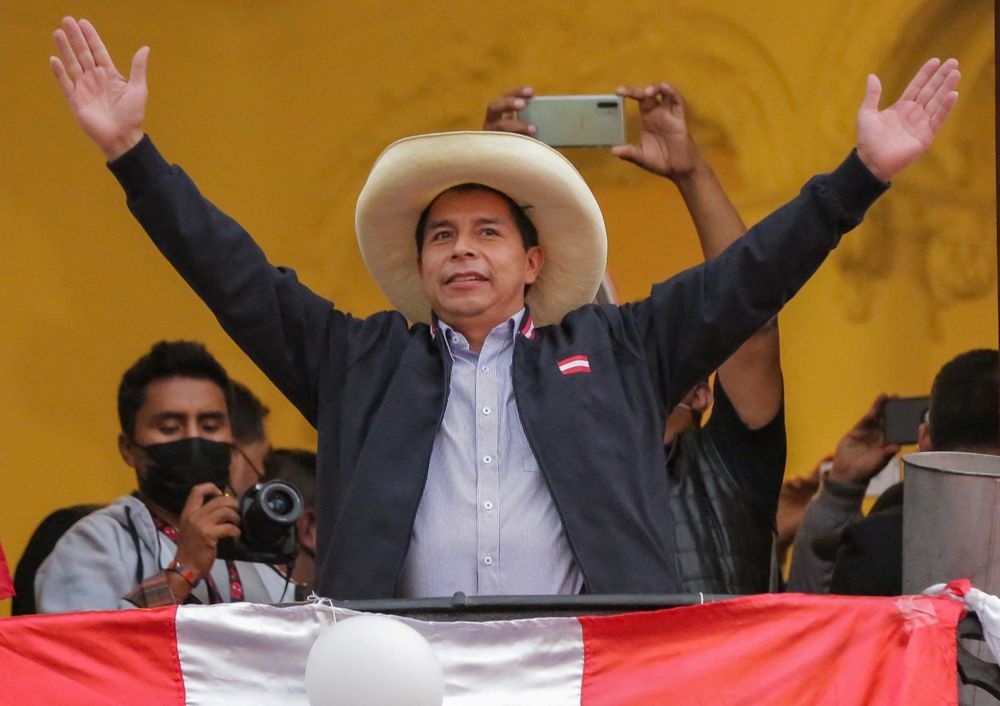by María Cervantes
Peru’s President Pedro Castillo will challenge a recently approved law that left him even more politically vulnerable by limiting his power to dissolve congress.
Justice Minister Anibal Torres told local radio RPP on Wednesday the government will ask the country’s top court to declare the law unconstitutional.
The proposal, approved by lawmakers late on Tuesday by 79 out of 130 votes, makes it harder for the government to invoke a constitutional mechanism known as vote of confidence. The president can dissolve congress if lawmakers twice deny him such vote. Former President Martin Vizcarra dismissed congress in 2019 using that mechanism.
At the same time, lawmakers ignored a bill presented by the government that would restrict their ability to impeach the president.
“Congress has broken the law,” Torres said. “Now there’s no more balance of power.”
Now the president can only ask lawmakers for a vote of confidence on government policies, and no longer on constitutional reforms. On the other hand, congress can still impeach the president on grounds of moral incapacity, a very broad definition that’s caused the ouster or resignation of three presidents over the past 3-and-half years.
The Constitutional Court currently composed by six justices must decide on the constitutionality of the law, which has yet to be published in the country’s official gazette. The government will need five votes from the top court to win the case.
Presidents Duque and Bolsonaro show mutual understanding during Brasilia meeting
Brazil’s President Jair Bolsonaro Tuesday welcomed his Colombian counterpart Iván Duque in Brasilia to discuss bilateral issues as well as a joint agenda ahead of the COP-26 environmental summit next month in Glasgow.
Both countries agreed to double down on their efforts regarding the Amazon basin. The two heads of state also pledged to foster bilateral trade and strengthen international security, it was reported.
”I want to thank the visit of the noble President Iván, to say that Brazil will always have open arms to his country and with all certainty, we will arrive together at Glasgow to deal with a very important and expensive matter for all of us, our beloved, rich and desired Amazon,” Bolsonaro told Duque on the ramp at the Planalto Palace, in Brasilia.
The Brazilian leader spoke for about three minutes before meeting privately with Duque. Cabinet members joined in later on.
Duque highlighted in an even lengthier speech that both governments shared the idea of “arriving in Glasgow with an unequivocal message to protect this (Amazonian) territory.”
Former soldiers attack Guatemala Congress building
Riot police were deployed onto the streets of Guatemala City, after a group of army veterans breached the Congress building. Lawmakers and office workers were evacuated as the group set cars alight in the car park, and caused damage to the main building. Military veterans have been protesting for several weeks, demanding approval of a law which would give them compensation for each year served during Guatemala’s long running civil war, dating from 1960-1996.
In brief: Cuba loosens entry requirements to boost tourism
* Cuba’s tourism minister, Juan Carlos García, has announced a series of measures to fully reopen the island to international tourism next month, after 18 months in which the sector was pummelled by reduced travel during the coronavirus (Covid-19) pandemic. These measures include the lifting of mandatory quarantine requirements for all travellers from 7 November, and, from 15 November, the lifting of the requirement for double vaccinated travellers to show a negative PCR (polymerase chain reaction) test upon arrival. Those who have not been double vaccinated will still need to present a negative PCR test.



